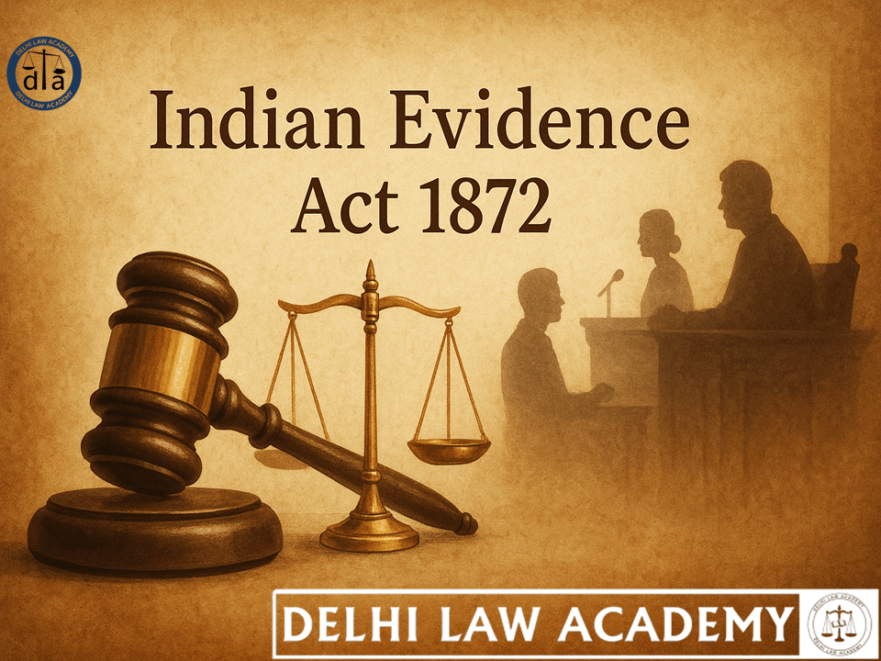
📜 A Note on Sections 25 to 27 of the Evidence Act [Confessions] Supported by Landmark Supreme Court and Privy Council Judgments
📚 The Indian Evidence Act 1872: Section 25 – 27 CONFESSIONS
Confessions made to a police officer – Section 25
- No confession made to a police officer
- shall be proved against a person accused of any offence
The terms of Section 25 are imperative.
- A confession made to a police officer under any circumstances is not admissible in evidence against the accused.
- It covers a confession made when he was free and not in police custody, as also a confession made before any investigation has begun.
- The expression “accused of any offence” covers a person accused of an offence at the trial whether or not he was accused of the offence when he made the confession.
Additional protection to a confession made to a police officer:
- Section 162 CrPC forbids the use of any statement made to a police officer in the course of an investigation.
- The words of Section 162 are wide enough to include a confession made to a police officer in the course of an investigation.
Q:
- Can a confessional FIR be used against the informant-accused?
Ans: Supreme Court in Aghnoo Nagesia v. State of Bihar [1966]
- If the information is a non-confessional statement, it is admissible against the accused as an admission under Section 21 of the Evidence Act and is relevant.
- But a confessional first information report to a police officer cannot be used against the accused in view of Section 25 of the Evidence Act.
Confessions made while in custody of police – Section 26
- No confession made by any person
- whilst he is in custody of a police officer
- shall be proved against him
- unless it be made in immediate presence of a Magistrate
- Section 26 prohibits proof of a confession made in the custody of a police officer, unless it is made in the immediate presence of a Magistrate.
- The partial ban imposed by Section 26 relates to a confession made to a person other than a police officer.
- Section 26 does not qualify the absolute ban imposed by Section 25 on a confession made to a police officer.
Certain information received from an accused in police custody may be proved – Section 27
- When any fact is deposed to
- as discovered in consequence of
- information received from an accused person in custody of a police officer
- so much of such information
- as relates distinctly to the fact thereby discovered
- may be proved
Sir John Beaumont, Privy Council, in Pulukuri Kottaya v. Emperor [1947 PC]
- Section 27 provides an exception to the prohibition imposed by the preceding section, and enables certain statements made by a person in Police custody to be proved.
- The condition necessary to bring the section into operation is that the discovery of a fact in consequence of information received from a person accused of any offence in the custody of a Police Officer must be deposed to, and thereupon so much of the information as relates distinctly to the fact thereby discovered may be proved.
- The section seems to be based on the view that if a fact is actually discovered in consequence of information given, some guarantee is afforded thereby that the information was true, and accordingly, can be safely allowed to be given in evidence.
Q:
- What is the meaning and scope of the term “fact discovered” in section 27?
Ans: Sir John Beaumont, Privy Council, in Pulukuri Kottaya v. Emperor [1947 PC]
- It is fallacious to treat the “fact discovered” within the section as equivalent to the object produced;
- The fact discovered embraces the place from which the object is produced and the knowledge of the accused as to this, and the information given must relate distinctly to this fact.
- Information as to past user or the past history of the object produced is not related to its discovery in the setting in which it is discovered.
An illustration to understand the scope of section 27:
- Information supplied by a person in custody that “I will produce a knife concealed in the roof of my house” does not lead to the discovery of a knife; knives were discovered many years ago.
- It leads to the discovery of the fact that a knife is concealed in the house of the informant to his knowledge, and if the knife is proved to have been used in the commission of the offence, the fact discovered is very relevant.
- But if to the statement the words be added “with which I stabbed A”, these words are inadmissible since they do not relate to the discovery of the knife in the house of the informant.
Q.
- Which confessions are not admissible?
Ans:
- Confessions made under the circumstances specified under section 24 and before persons specified in sections 25 and 26 are not admissible except under circumstances specified in section 27.
📚 Continue Your Evidence Act Preparation
Don’t stop here! Strengthen your knowledge of the Evidence Act with our other fully solved tests:
📘 Free Study Material for Judiciary Aspirants!
Download our FREE study material prepared by Delhi Law Academy’s expert faculty.
❓ FAQs on Sections 25-27 of the Evidence Act
- No confession made to a police officer shall be proved against a person accused of any offence (Section 25).
- This applies even if the confession was made when free, before investigation, or at trial.
- Additional protection under Section 162 CrPC forbids use of statements made to police in the course of investigation.
Supreme Court in Aghnoo Nagesia v. State of Bihar [1966]:
- If it is a non-confessional statement, it is admissible as an admission under Section 21.
- Confessional FIRs to police officers cannot be used against the accused under Section 25.
- No confession made while in custody of a police officer shall be proved unless made in the immediate presence of a Magistrate (Section 26).
- Section 26 applies to confessions made to persons other than police officers.
- It does not override the absolute ban of Section 25 on confessions made to police.
- Facts discovered as a consequence of information received from an accused in police custody may be proved.
- Only so much of the information as relates distinctly to the discovered fact can be used.
- Privy Council in Pulukuri Kottaya v. Emperor [1947 PC]
📍 Delhi Law Academy – Jaipur Branch
6C, Tower 2, Coaching Hub, Pratap Nagar, Jaipur – 302033📞 Phone:
+91 9911916552
+91 8447285606✉️ Email:
contactus@delhilawacademy.com

